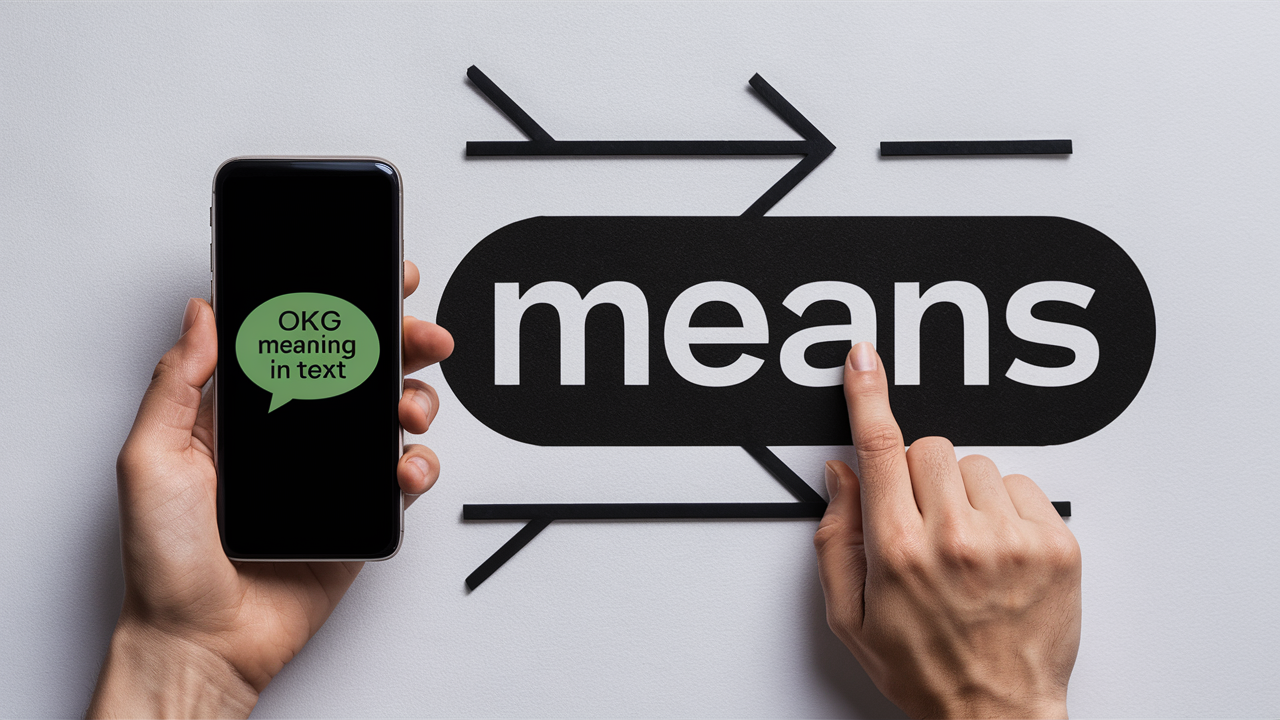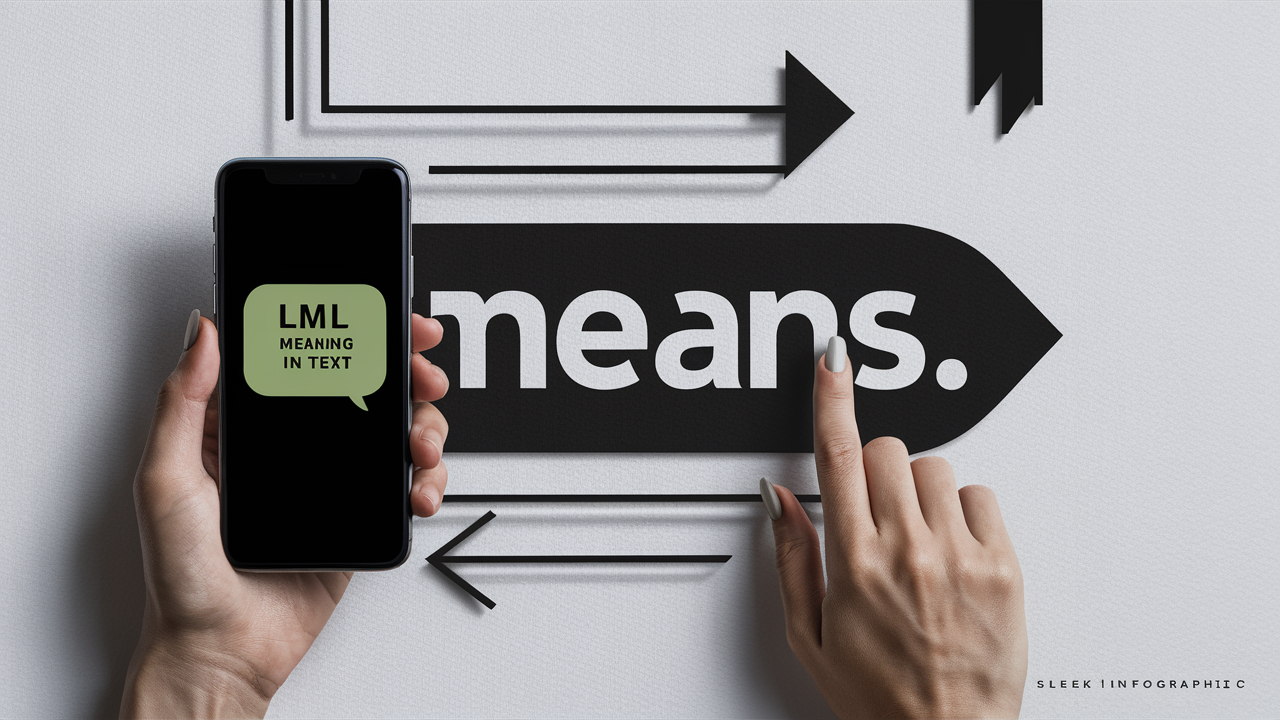Have you ever received a message that just says “okg” and stared at it for a moment, trying to figure it out 🤔? Texting slang evolves so quickly that two or three letters can mean more than entire sentences these days.
Whether someone responded “okg” to your message or dropped it randomly mid-conversation, knowing what it often implies can save you misunderstandings.
In this article, we’ll explore the **okg meaning in text**, how it’s used across contexts, variations, and when it’s appropriate (or not). By the end, you’ll be comfortable decoding “okg” in your chats. Let’s dive in!
Why Decoding “okg” Matters in Modern Messaging
In digital communication, tone, intent, and nuance can vanish unless you choose words carefully. A shorthand like “okg” can carry unexpected meaning or emotion. Misinterpreting it might lead to confusion, hurt feelings, or even friction.
Understanding “okg meaning in text” is important for:
- Interpreting messages in friendships and casual chat
- Communicating clearly with younger or slang-using peers
- Avoiding awkwardness or unintended tone in digital conversations
What We Know: Origins & Common Uses of “okg”
“okg” is not as widely documented in slang dictionaries as “lol,” “brb,” or “ok.” But here’s what research and usage patterns suggest:
- Chat / Abbreviations.com: “okg” is listed as shorthand for **“OK Girl”** in chat contexts. :contentReference[oaicite:0]{index=0}
- Other sources: “OKG” also appears as an acronym meaning “Our Kind of Guy.” :contentReference[oaicite:1]{index=1}
- In non-slang contexts, “OKG” has technical or organizational meanings (e.g. airport code, chemical compounds) which typically don’t apply in messaging. :contentReference[oaicite:2]{index=2}
So in chat or texting, the two plausible primary interpretations are:
- “OK Girl” — a casual, playful or affectionate acknowledgment
- “Our Kind of Guy” — used to refer to someone admired or fitting a group ideal
Which meaning applies depends heavily on conversation context, your relationship with the sender, and tone.
Primary Interpretations of “okg” in Chat
“OK Girl” — Friendly or Playful Acknowledgment
In many casual exchanges, “okg” is shorthand for **“OK Girl.”** It’s a quick, informal response that can convey acceptance, agreement, or light acknowledgment—especially between friends or in informal chat.
Example: “I’ll meet you at downtown at 5.”
“okg” → meaning: “Okay, girl, got it.”
When used this way, “okg” often carries warmth, familiarity, or an affectionate undertone.
“Our Kind of Guy” — Admiration or Inclusion
Another meaning that appears is **“Our Kind of Guy”**. This version is more about labeling someone as fitting your group’s standards, values, or vibe. You might see it in contexts like groups praising someone or expressing admiration.
Example: “He brought extra food and stayed late to help clean.”
“okg” → meaning: “He’s our kind of guy (we appreciate him).”
In this meaning, “okg” is less about acknowledgment and more about identity, approval, or empathy.
Which Meaning to Use in Your Chat — What to Watch For
Because “okg” is ambiguous, here are signals to help you decide which interpretation to lean toward:
- Who is the sender? If it’s a close friend, “OK Girl” is more likely.
- Conversation topic: If the chat is praise, admiration, or describing someone, “Our Kind of Guy” fits better.
- Tone & emojis: “okg 😊” suggests warm acknowledgment; “okg 🙌” might lean admiration.
- Replies around it: If the previous message references a person’s character, “okg” probably means “our kind of guy.”
- Use of capitalization: If someone writes “OKG” in all caps, it may more likely lean the acronym route (though not always).
“okg” vs Similar Slangs & Abbreviations
Let’s compare “okg” with some similar short responses:
| Abbreviation | Typical Interpretation | Use Case / Tone |
|---|---|---|
| okg | “OK Girl” or “Our Kind of Guy” | Casual acknowledgment or admiration |
| ok | “Okay” | Neutral confirmation or acceptance |
| k | “Okay” (more curt) | Quick, possibly minimal or abrupt agreement |
| omg | “Oh my God” / “Oh my gosh” | Surprise, shock, excitement |
| ily / ilysm | “I love you / I love you so much” | Affectionate, emotional |
As you can see, “okg” holds unique ground: it’s not a neutral confirmation like “ok,” but more expressive—yet subtle.
How Tone, Emojis & Punctuation Affect “okg”
Even small changes to “okg” can drastically shift its feel. Here’s how:
- okg 😊 → friendly, warm, playful
- okg 🙌 → enthusiastic admiration
- okg? → asking for clarity or tone check
- okg… → hesitation or uncertainty
- OKG! → emphasis—possibly admiration or exclamation
Use punctuation and emojis wisely—they layer tone onto the base “okg.”
Examples of “okg” in Real Chat Conversations
Example 1: Acknowledgment Between Friends
Friend A: “I’ll pick you at your place at 6.”
Friend B: “okg”
Interpretation: “Okay, girl, I got it.” Warm, casual confirmation.
Example 2: Admiration / Inclusion
Friend A: “He held the door open and asked how your day was.”
Friend B: “okg”
Interpretation: “He’s our kind of guy.” Approval of character.
Example 3: When You’re Unsure
You: “Do you really want to go with him?”
Friend: “okg…”
Interpretation: Hesitant or cautious—maybe they have mixed feelings.
Example 4: Clarification Request
Person A: “I told him to wait longer.”
Person B: “okg?”
Interpretation: “Do you mean ‘okay girl’ or ‘our kind of guy’?” or “Are you okay with that?”
When “okg” Might Be Misinterpreted or Risky
Because **“okg”** is nonstandard and ambiguous, using it in some situations might backfire. Here are risks and tips:
- In formal or professional contexts: Avoid “okg” — it may appear unprofessional or careless.
- With older people or those unfamiliar with slang: They might be confused by “okg.”
- In emotionally sensitive conversations: Use clear language instead of slang that can be misread.
- When tone matters: Add clarifying words or emojis to soften ambiguity.
- If you’re unsure of the meaning: Ask for clarification rather than assuming.
Regional, Generational & Cultural Variations
Slang evolves differently in various communities. Here’s how “okg” might differ:
- Within friend groups: “okg” might develop an in-group meaning unique to that circle.
- In certain locales: The “OKG” acronym may be known from sports, organizations, etc., which could influence meaning.
- Gen Z vs Millennials: Younger users might be more flexible with meaning; older users might misread or not know it at all.
Because “okg” is niche, expect variance in understanding.
SEO Tip: Using “okg meaning in text” Effectively in Content
If you write about slang or texting culture, here’s how to optimize “okg meaning in text”:
- Place **okg meaning in text** in the first 100 words (we did) to signal relevance.
- Use variations: “meaning of okg in chat,” “okg text slang,” “okg acronym meaning.”
- Organize with clear headings so Google can pull featured snippets.
- Include real examples, tables, FAQs — supports dwell time and clarity.
- Link to related content: e.g. Meaning of OKG on Social Media.
Psychology & Tone Behind Using “okg”
Why might people choose “okg” instead of writing “okay” or “that’s cool”? Here’s what may be going on:
- Minimal effort, yet expressive: Short, but carries personality.
- In-group signal: If both parties know the slang, it strengthens connection.
- Subtle tone calibration: More expressive than “k,” less formal than full sentences.
- Emotional buffer: It softens or distances the message when you don’t want to overcommit.
In many ways, “okg” is a tone regulator—a compact way to compliment or agree with ease.
When You Should Use “okg” (and When to Avoid It)
✅ Appropriate Use Cases
- Casual chat with friends who understand slang
- Praise, compliment, or acknowledgment when tone is light
- Non-serious, low-stakes conversations
- Chats where your texting style is known and accepted
❌ Situations to Avoid “okg”
- Professional or business messaging
- When clarity is critical (agreements, logistics, instructions)
- To people unfamiliar with slang or new audiences
- During serious or emotional conversations
- In cross-generational communication where slang may not translate
Platform Notes: How “okg” Appears Across Messaging Apps
“okg” behaves slightly differently depending on the platform:
- SMS / default text apps: Just plain text—interpretation relies fully on context and preceding messages.
- WhatsApp, Messenger, Telegram: You’ll often see emojis or message quoting that add tone cues.
- Social media (comments / posts): Because space is public, “okg” may be misinterpreted or questioned.
- Forums / group chats: Some members might not know it; best to accompany with clarifiers sometimes.
Featured Snippet–Style Quick Definition
“okg” in text messages most often means either **“OK Girl”** (friendly acknowledgement) or **“Our Kind of Guy”** (admiration or inclusion), depending on context, tone, and punctuation.
Advanced Usage: Combining “okg” with Other Slang or Emojis
To enrich meaning, people often stack or pair “okg” with other slang:
- “okg lol” → “Okay girl, haha understood.”
- “okg 😊” → Warm, friendly nod.
- “okg 🙌” → Strong approval or praise.
- “okg idk” → “Okay, girl—but I don’t know.”
This layering allows you to communicate tone without long sentences—very handy in fast chat.
FAQ: Common Questions About “okg” Meaning
Q1: Is “okg” always affectionate?
No. Sometimes it’s just a casual acknowledgment (“OK Girl”) without deeper emotion. Other times, it may signal admiration (“Our Kind of Guy”). Context is everything.
Q2: Could “okg” be misunderstood?
Absolutely. People unfamiliar with the slang may take it literally, think it’s a typo, or misinterpret the tone. Always gauge your audience.
Q3: How do I know which meaning is intended?
Look at context (what was said just before), tone markers (emojis, punctuation), and how the sender normally communicates. If unsure, politely ask.
Q4: Is “okg” used widely in 2025 texting culture?
It’s more niche than major acronyms. Among close friend groups or certain subcultures it may be common, but many people might not recognize it yet.
Q5: Can “okg” be gendered (i.e., only used with “girl”)?
While “OK Girl” is gendered, many users use “okg” playfully with anyone—regardless of gender. It depends on relationship dynamics and shared slang norms.
Conclusion / Final Thoughts
The shorthand **“okg”** is a small yet intriguing piece of modern messaging. Whether it means **“OK Girl”** or **“Our Kind of Guy”**, its power lies in its flexibility, tone, and the relationship between sender and receiver. In 2025, texting language continues evolving—and “okg” is a perfect example of how two letters can carry personality.
Next time someone drops “okg” in your chat, pause, reflect on the tone and context, and your internal decoder will likely get it right. And, when in doubt—ask for clarity. Communication is worth the little extra step.



